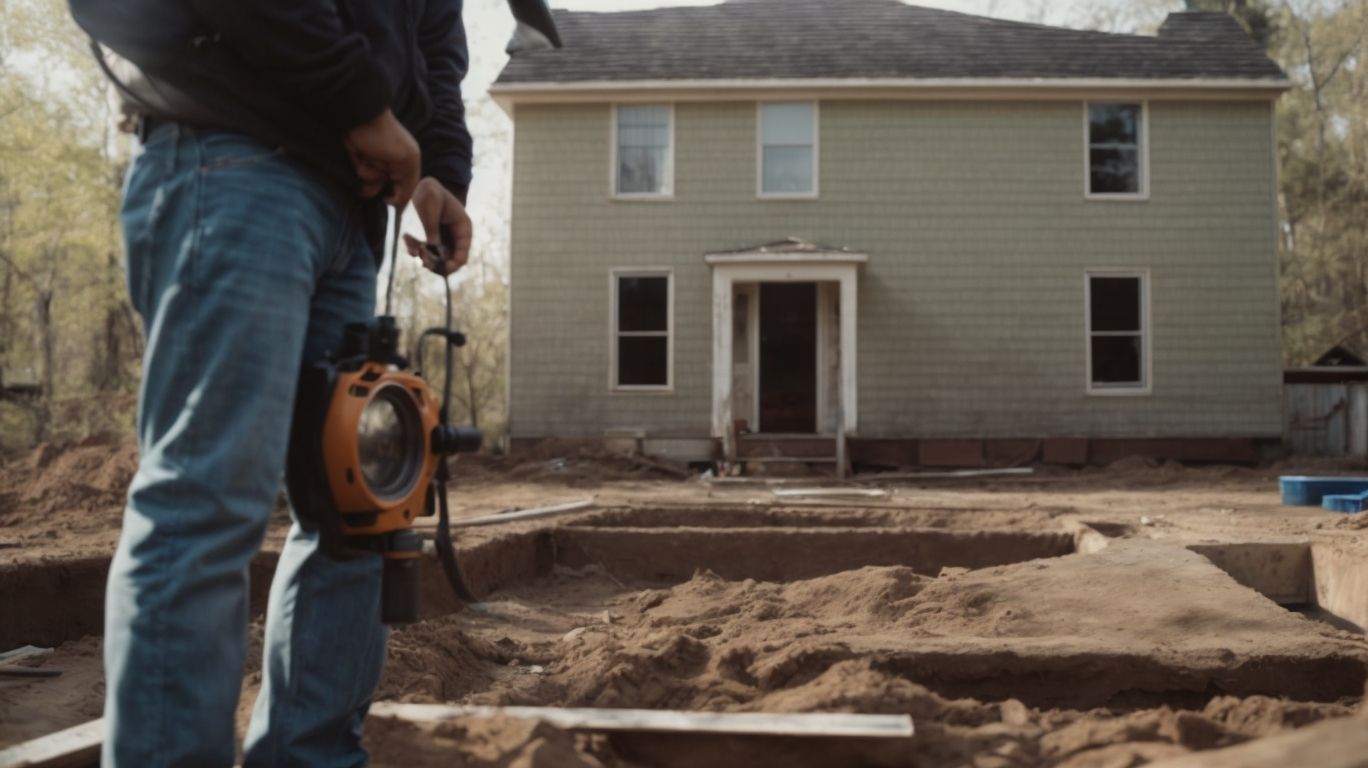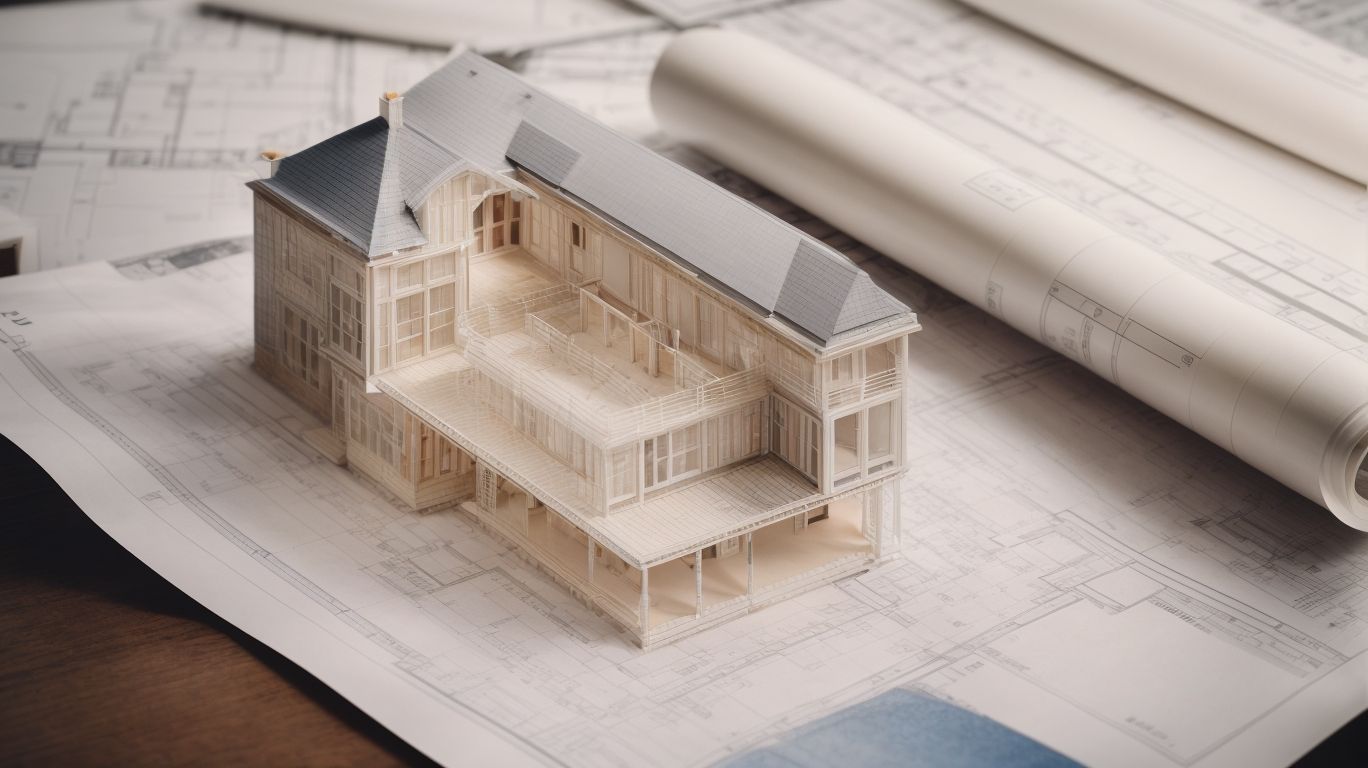
Benefits of Pre-Renovation Foundation Inspections
Are you considering a home renovation? Before you grab that sledgehammer, it’s crucial to understand the importance of a pre-renovation foundation inspection.
This process can uncover existing issues, prevent future problems, and save you time and money in the long run.
From identifying common issues to the benefits for homeowners, this article will cover everything you need to know about pre-renovation foundation inspections.
Don’t skip this crucial step and risk costly repairs, safety hazards, and legal issues – read on to learn more.
What Is a Pre-Renovation Foundation Inspection?
A pre-renovation foundation inspection is a detailed assessment and evaluation of the structural integrity and stability of a property’s foundation before construction or renovation work begins.
This process helps to identify any existing issues or weaknesses in the foundation that may affect the stability and safety of the structure.
By conducting a thorough examination, including measurements, tests, and examinations, a professional inspector can provide invaluable insights into the condition of the foundation, ensuring that any necessary repairs or reinforcements are addressed before renovations commence.
This proactive approach not only guarantees the structural soundness of the property but also prevents potential costly damages in the future, ultimately contributing to the overall success and longevity of the construction project.
Why Is It Important to Have a Pre-Renovation Foundation Inspection?
It is crucial to conduct a pre-renovation foundation inspection to ensure the property’s structural stability, identify potential issues, and implement preventative measures that safeguard the building’s integrity and the safety of its occupants.
Identifies Existing Issues
A pre-renovation foundation inspection serves to meticulously analyze and report on any existing structural issues, enabling the implementation of preventative measures and proactive maintenance strategies.
This detailed analysis plays a crucial role in averting potential hazards that may arise during the renovation process. By identifying weaknesses in the foundation or structural components, such as cracks, uneven settling, or water damage, the inspection report guides homeowners and contractors in taking necessary measures to fortify the property.
Addressing these issues preemptively not only ensures a smoother renovation process but also contributes to the long-term durability and stability of the structure, reducing the likelihood of future costly repairs.
Prevents Future Problems
By addressing potential issues and implementing preventative measures, a pre-renovation foundation inspection plays a vital role in preventing future structural problems, safeguarding the property’s integrity, and ensuring long-term stability.
Professional inspectors play a crucial role in conducting comprehensive assessments of the foundation. They identify any hidden concerns and provide tailored recommendations. Their expertise can uncover issues that may not be immediately apparent, allowing for timely intervention and the implementation of preventative maintenance strategies. This proactive approach ultimately saves homeowners from costly repairs and preserves the structural integrity of their properties, ensuring peace of mind and long-term value.
Saves Time and Money
A comprehensive pre-renovation foundation inspection not only saves time by addressing issues proactively but also results in significant cost savings by preventing the escalation of structural problems during the construction phase.
Pre-renovation inspections are crucial for identifying and addressing potential issues before they become costly problems. These inspections can save homeowners money by allowing for timely repairs and maintenance of the foundation, avoiding expensive repairs during or after the renovation process. This proactive approach can also streamline construction and prevent unexpected expenses and delays.
What Are the Steps Involved in a Pre-Renovation Foundation Inspection?
The process of a pre-renovation foundation inspection encompasses several essential steps, including visual inspections, soil analysis, and comprehensive structural assessments to ensure the property’s stability and integrity.
Visual Inspection
The visual inspection phase of a pre-renovation foundation assessment involves a detailed analysis of the property’s structural elements to identify potential issues and assess the overall integrity of the foundation.
This crucial step allows inspectors to visually examine the foundation, walls, floors, and ceilings for signs of cracks, water damage, settlement, or other structural issues. Through visual analysis, they can spot warning signs of potential problems that may compromise the structural integrity of the building.
Early detection of these issues can lead to timely repairs, preventing further damage and ensuring the long-term stability and safety of the structure.
Soil Analysis
Soil analysis forms a critical part of the pre-renovation foundation inspection process, providing insights into the soil’s stability and its impact on the construction and structural assessment of the property.
Understanding the soil composition and its characteristics is pivotal in gauging its load-bearing capacity, settlement behavior, and drainage capabilities. This information plays a crucial role in determining the type of foundation that will best suit the property, ensuring its long-term structural integrity.
By identifying any potential risks or challenges related to the soil, such as expansive clay or high water tables, soil analysis enables engineers to implement targeted mitigation strategies, ultimately enhancing the safety and longevity of the construction project.
Structural Assessment
The structural assessment stage involves a comprehensive evaluation and analysis of the property’s foundation to detect any potential issues and plan for necessary maintenance and structural improvements.
This process typically begins with a thorough visual inspection of the foundation for any visible signs of cracks, settling, or water damage.
Subsequently, various testing methods such as ground-penetrating radar, soil analysis, and structural monitoring may be employed to assess the integrity of the foundation. The assessment also considers factors like soil composition, drainage patterns, and the overall environmental impact on the property.
By undertaking proactive maintenance and timely repairs based on these evaluations, property owners can mitigate the risk of structural damages and ensure the longevity of their buildings.
What Are the Common Issues Found in a Pre-Renovation Foundation Inspection?
During a pre-renovation foundation inspection, common issues such as cracks and settlement, water damage, and pest infestations are frequently identified, requiring prompt attention and remediation.
Cracks and Settlement
The presence of cracks and settlement in a property’s foundation, often detected during pre-renovation inspections, signifies underlying structural problems that require immediate repair and reinforcement.
These issues can compromise the stability and safety of the entire structure. Addressing them promptly is essential to prevent further damage and costly repairs.
Ignoring these signs could lead to more severe structural issues, impacting the overall integrity of the building. Structural reinforcement and repair not only ensure the safety of occupants but also protect the property’s long-term value. Timely intervention can mitigate the risk of extensive damage and preserve the structural integrity of the property.
Water Damage
Water damage, a common finding in pre-renovation foundation inspections, necessitates a comprehensive property assessment and proactive measures to ensure the building’s safety and integrity.
This damage can compromise the structural stability of a property, leading to potential hazards and costly repairs if left unattended.
A thorough inspection can identify hidden water damage, such as mold growth and weakening of building materials, allowing for timely intervention to mitigate risks.
Proactive measures like waterproofing, proper drainage systems, and regular maintenance can significantly reduce the likelihood of water damage and its detrimental effects on property safety and integrity.
Pest Infestations
Identifying pest infestations during a pre-renovation foundation inspection underscores the importance of addressing these issues to safeguard building safety and facilitate successful property renovation efforts.
This proactive approach not only ensures a stable and secure foundation for the renovation project but also prevents potential safety hazards.
Neglecting pest infestations can lead to structural damage, compromising the integrity of the building. Taking early measures to address pests minimizes the risk of health concerns for future occupants.
Considering safety considerations from the onset of a renovation project is crucial in creating a conducive and secure living or working environment.
How Can a Pre-Renovation Foundation Inspection Benefit Homeowners?
A pre-renovation foundation inspection offers homeowners peace of mind, enhances property value, and facilitates successful home improvement projects by addressing structural problems and guiding necessary repairs and renovations.
Peace of Mind
The thorough assessment provided by a pre-renovation foundation inspection contributes to homeowners’ peace of mind by ensuring the safety and stability of their property’s foundation, alleviating concerns about potential structural issues.
This comprehensive foundation assessment not only offers emotional reassurance by addressing potential worries, but it also provides practical benefits by identifying any underlying problems that could result in costly repairs in the future.
By proactively addressing any foundation issues, homeowners can have confidence in the long-term integrity of their property, allowing them to focus on enjoying their living space without the stress of potential structural concerns.
Better Negotiation Power
A favorable pre-renovation foundation inspection report empowers homeowners with stronger negotiation leverage by demonstrating the property’s structural soundness, compliance with building codes, and overall value.
This comprehensive report not only provides potential buyers with confidence in the property’s condition, but it also serves as a valuable tool for sellers, enabling them to justify their asking price based on the documented compliance and quality.
It can streamline negotiations by minimizing uncertainties and unforeseen costs, as the thorough inspection reassures both parties of the property’s worth. Ultimately, a positive inspection report holds the potential to significantly impact the negotiation dynamics and overall outcome of the property transaction.
Ensures a Safe and Stable Home
By identifying and addressing potential structural issues, a pre-renovation foundation inspection ensures that homeowners can enjoy a safe, stable, and structurally sound living environment, enhancing the overall quality of their property.
This type of inspection plays a crucial role in verifying the stability of the property’s foundation, load-bearing walls, and structural components. This helps prevent potential risks such as foundation settling, structural failures, or compromised building integrity.
It is essential to prioritize these evaluations to guarantee the safety and longevity of the property, as well as to comply with building codes and regulations. A comprehensive structural assessment enables homeowners to make informed decisions about necessary repairs or renovations, ensuring that their investment yields a secure and durable living space.
What Are the Risks of Skipping a Pre-Renovation Foundation Inspection?
The decision to skip a pre-renovation foundation inspection exposes homeowners to the risks of costly repairs, safety hazards, and potential legal consequences, compromising the overall integrity and safety of the property.
Costly Repairs
The absence of a pre-renovation foundation inspection increases the likelihood of discovering structural damage later, leading to costly repairs and extensive foundation maintenance efforts that could have been mitigated through timely assessments and preventative measures.
This can significantly impact the overall budget for the renovation project, adding unforeseen expenses and causing delays. Undetected issues such as cracks, settling, or water damage in the foundation could lead to long-term structural problems, requiring extensive and costly repairs.
By prioritizing pre-renovation inspections and addressing any underlying concerns promptly, homeowners can avoid the financial strain of major structural repairs and ensure the stability and longevity of their property’s foundation.
Safety Hazards
Skipping a pre-renovation foundation inspection exposes homeowners to safety hazards resulting from undetected structural defects, jeopardizing building safety and the well-being of occupants.
Undetected defects in a building can compromise its structural integrity, potentially causing collapses or other safety incidents. Neglecting inspections may leave hazards like mold, asbestos, or faulty wiring lurking within the walls. These risks can harm health and create financial burdens for homeowners. Therefore, thorough pre-renovation inspections are essential for ensuring the safety and stability of the entire dwelling.
Legal Issues
The absence of a pre-renovation foundation inspection can lead to legal complications arising from non-compliance with building codes and regulations, potentially impeding property renovation and development initiatives.
This lack of inspection may result in violations of local codes and regulations, leading to costly fines and delays in project timelines.
Failure to adhere to building codes can pose safety risks to occupants and affect the structural integrity of the property.
Addressing these compliance challenges proactively through thorough inspections and adherence to regulations is essential for successful and legally sound renovation endeavors.




No Comments